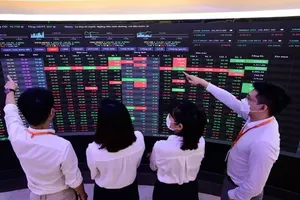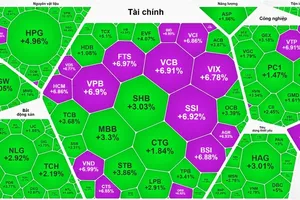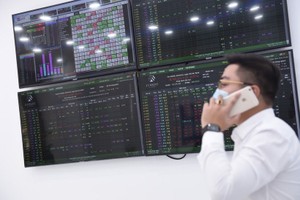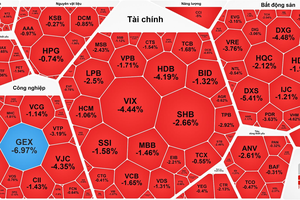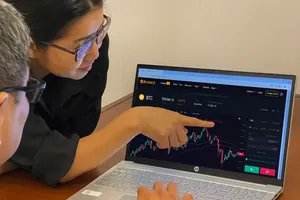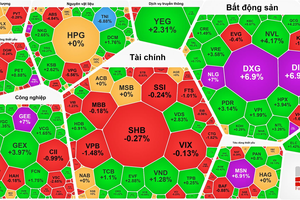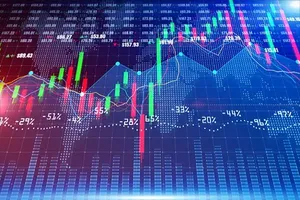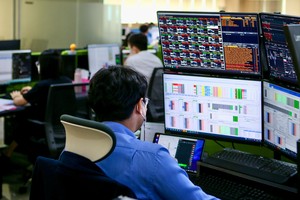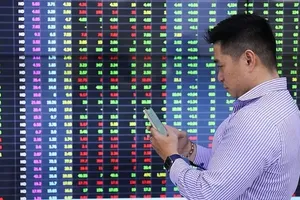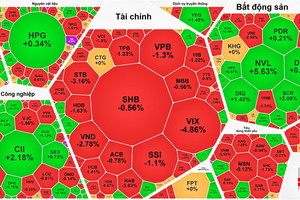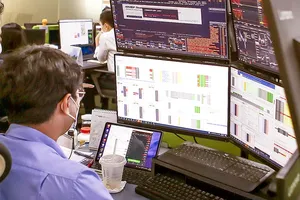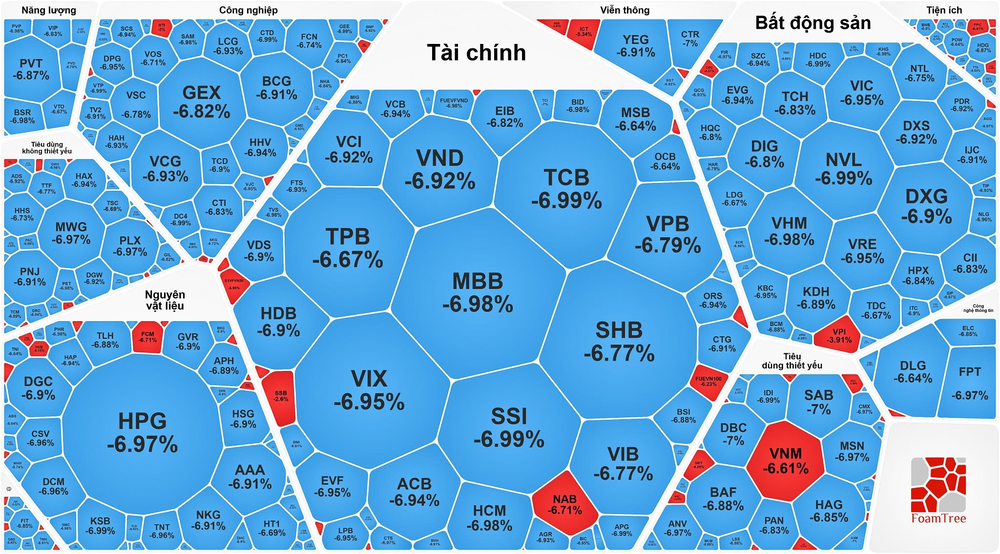
Vietnam’s stock market witnessed an even sharper sell-off than during the peak of the Covid-19 crisis, as panic-selling swept across all major sectors, including banking, real estate, securities, and consumer goods on April 3.
Banking stocks were hit hardest, with VCB, BID, CTG, TCB, and MBB all reaching their floor prices. Large-cap stocks like VHM, VIC, FPT, HPG, and GAS also tumbled, dragging the VN-Index down nearly 89 points.
By the end of the session, the VN-Index lost 87.99 points, or 6.68 percent, to close at 1,229.84. A staggering 517 stocks declined, including 282 at their floor prices, while only 13 advanced and eight remained unchanged. Hanoi Stock Exchange (HNX) saw a similar downturn, with the HNX-Index plunging 17.18 points, or 7.21 percent, to finish at 220.95. Out of 214 declining stocks, 104 hit the floor, while only 14 gained and 11 stayed flat.
Market liquidity surged, with total trading value across HOSE and HNX exceeding VND42 trillion. HOSE alone accounted for more than VND39.63 trillion (over $1.5 billion). The sell-off wasn’t limited to domestic investors—foreign investors also offloaded stocks heavily, with net sales on HOSE reaching over VND2.192 trillion. The three most offloaded stocks were MBB with VND490 billion, TPB with VND308 billion, and MWG with nearly VND199 billion.
Amid the historic drop, experts urged investors to stay rational and focus on risk management. Mr. Nguyen The Minh, Head of Research & Development for Retail Clients at Yuanta Securities Vietnam, advised against panic selling unless facing margin pressure, emphasizing that history shows steep declines often lead to sharp rebounds.
Mirae Asset Securities analysts echoed this, predicting short-term volatility but a likely recovery. They urged investors to stay composed, reassess their portfolios, and avoid excessive margin trading to minimize risks, warning that attempting to “catch a falling knife” could be dangerous.
“The details of the US tariffs remain unclear, and their full impact is still uncertain. Defensive sectors like dairy, pharmaceuticals, and oil and gas, or industries with limited US exposure, may find a bottom sooner. Investors should carefully assess their risk tolerance before making major decisions,” a Mirae Asset analyst noted.
